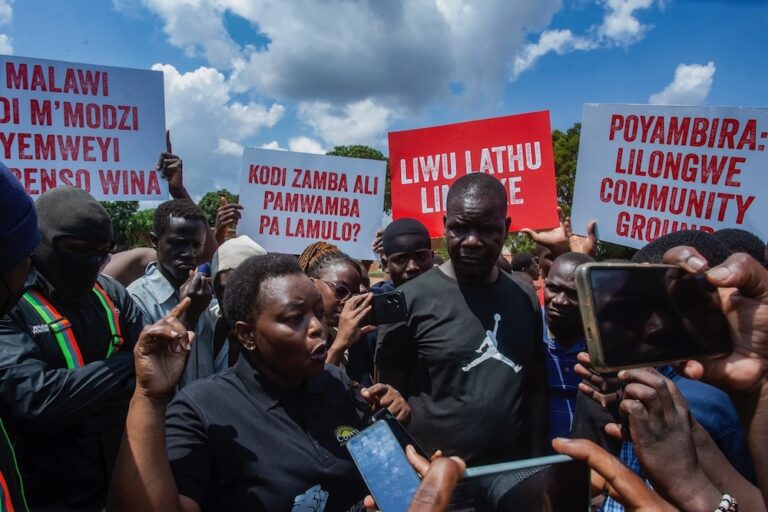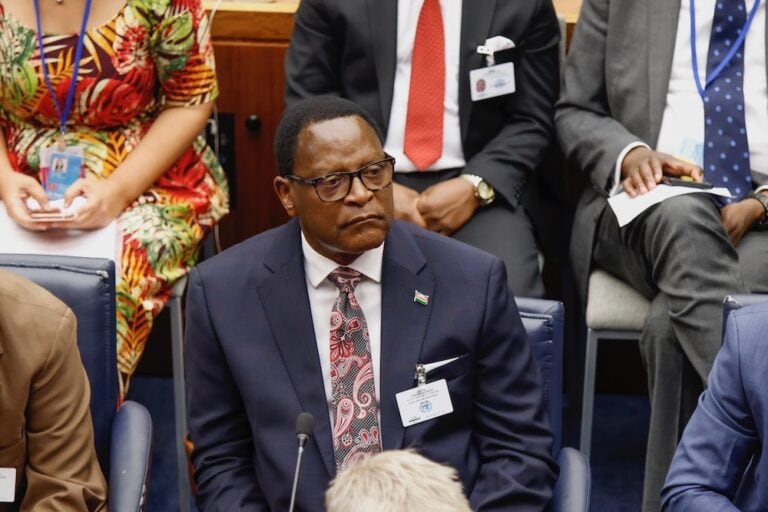(MISA/IFEX) – On 20 September 2005, Capital Radio Malawi launched a test case which challenges one of the laws impeding media freedom in the country, the Protected Emblems and Names Act of 1967. The Act reads: “Any person who does any act or utters any words or publishes any writing calculated to or liable to […]
(MISA/IFEX) – On 20 September 2005, Capital Radio Malawi launched a test case which challenges one of the laws impeding media freedom in the country, the Protected Emblems and Names Act of 1967.
The Act reads: “Any person who does any act or utters any words or publishes any writing calculated to or liable to insult, ridicule or to show disrespect to the President, the National Flag, the Armorial Ensigns, the Public Seal, or any protected emblem or protected likeness, shall be liable to a fine of 1,000 pounds (sterling) and to imprisonment for two years.”
Capital Radio Malawi managing director and editor-in-chief Al Osman said he had instructed his lawyers to lodge an appeal with the High Court asking it to declare the legislation unconstitutional.
On 14 September 2005, police evoked the legislation to arrest opposition leader Gwanda Chakuamba after he allegedly insulted President Bingu wa Mutharika at a political rally. Capital Radio broadcast the rally live to millions of Malawians. A day after the broadcast, the Malawi Communications Regulatory Authority (MACRA) visited the station demanding a copy of the recording of the rally.
Chakuamba’s outburst followed President Mutharika’s decision to fire him from Cabinet. Chakuamba was demoted from Minister of Agriculture to Irrigation, effectively dropping on Malawi protocol ladder from MG 3 to MG 5, a reason he cited as one of many behind his frustration. He has since been granted bail by a magistrate’s court in Blantyre.
Last March, the police evoked the Protected Emblems and Names Act against three local journalists following a story that Mutharika was haunted by ghosts in his 300-bedroom palace. The journalists were arrested and later released (see IFEX alerts of 16 and 15 March 2005).
The legislation has been targetted by MISA Malawi for repeal as it hinders media freedom.


